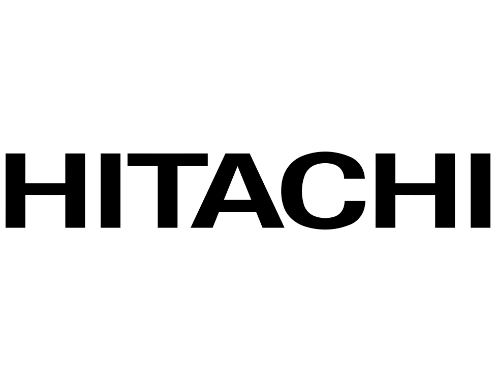Nashaat Salman - Director of Global Manufacturing Strategy & Quality at Hitachi


Nashaat Salman is the Director of Global Manufacturing Strategy & Quality at Hitachi in Switzerland. He started his career with ABB in 2000, where he worked for almost 20 years. He joined Hitachi in 2020.
How does your global role at Hitachi Group contribute to the overseas transformation and what sustainability challenges does your organisation face?
Hitachi Group has been undergoing an unprecedented transformation in recent years, moving from a Japan-centric manufacturing portfolio into a global player in green and digital transition, with the aim of becoming a global leader in the social innovation business.
Portfolio transformation drastically globalised Hitachi’s business and required the group to set up global teams to create a sustainable management structure, and to enable the global rollout of diverse businesses and initiatives by working as “One Hitachi” in the various fields related to three global trends: green, digital, and connectivity.
The key to achieving Hitachi’s goal is the growth of our social innovation business, which provides solutions for social and customer challenges through co-creation with various partners by leveraging information technology and operational technology with superior and high-quality products and Lumada (Hitachi’s advanced digital solutions, services, and technologies for turning data into insights to drive digital innovation).
Within the Manufacturing Strategy division, we work on applying these solutions - starting with our core business and production sites - so that we support testing and showcasing those innovative solutions within our core manufacturing footprint. We also put high emphasis on exploiting any possible synergies, as well as cross-sharing of expertise and technologies across our sectors and business units.
As for sustainability, Hitachi puts great emphasis on environmental challenges and the wellbeing of people. The transition to green is perhaps the greatest global shift and Hitachi is embracing this unparalleled challenge as an opportunity. Aiming to become a climate change innovator, Hitachi has developed a green strategy that comprises the two transformation pillars of “GX for CORE” and “GX for GROWTH”.
While Hitachi’s portfolio is well positioned to contribute to the realisation of a carbon-neutral society, we still have homework to do, as we have pledged to move to a 100% carbon-neutral footprint of all our manufacturing sites and facilities by 2030.
The key contribution of our manufacturing and production design is within the GX for CORE pillar. In addition to decarbonisation, energy saving, and applying eco-design for newly developed products, we are promoting sustainable recycling across our own operations. Contributing to a circular economy is a key area that we address.
What strategies do you use for developing innovative, diverse teams?
Hitachi now has more than 300,000 talented employees around the world, with diverse languages and backgrounds, and even with different approaches to doing business, but sharing a common determination to contribute to society and to people’s happiness.
We believe that such diversity fosters an environment of innovation. We would like our teams to be enabled to appreciate such a diverse global network. I personally believe in the power of network leadership.
Our teams are encouraged to go far beyond traditional inward-looking and autocratic hierarchal management. This would also require the workforce groups that have no access to resources to manage the hierarchal barrier. They are encouraged to utilise the global network within the group to initiate collaborative action, share skills and knowledge, and bring connectedness to diverse mass under a “One Hitachi” spirit.
How will digital transformation change the roles within Manufacturing?
The digitisation of manufacturing and the adoption of automation technologies are reshaping the industry and changing the workforce, making it more competitive, efficient, and sustainable, and - most importantly - even safer. It will, of course, impact the future of job employment in terms of creating new jobs or losing others. But it is largely being anticipated - or at least hoped - that it will lead to job displacement, rather than loss.
Obviously, the biggest impact on the workforce will come from artificial intelligence and robot/humanoid areas. All in all, for an organisation to succeed in digital transformation, it requires stronger workforce engagement and adaptation to the change.
Angela Merkel once said: “Be ready in 2025 or history in 2035.” However, it is interesting to observe that - as per most recent industry surveys - while for 94% of surveyed manufacturers, Industry 4.0 (the fourth industrial revolution) was sighted as being critical to keeping operations running, most organisations (74%) are still struggling to get value from their Industry 4.0 investments. All in all, 64% of companies are still at an early stage of digital transformation.
So, we need to appreciate that this will be quite a journey for all players in the market and we have a massive opportunity ahead. Within the Hitachi Group, one of our key priorities is to enable our footprint to be in the front seats of this journey and even be ready for Industry 5.0.
We are all very excited about generative AI and the opportunities that it is bringing, but we need to be prepared to address the change responsibly. Hitachi’s approach is to promote the safe, effective use of generative AI fuelled by human will to “power good”, quoting our CEO’s vision.
Think back to the best manager you’ve ever worked for. What did you like about the person’s management style?
It’s hard to pick a star leader that alone stands out. In fact, all the previous business leads and line managers have had some kind of positive impact, but the teams I have worked with have had the most influence.
I have been inspired by leaders and peers who empower and develop their teams, encourage them to explore, and to go and play beyond their comfort zone, while remaining resilient. That brings me back to the very early stages of my career, when an inspiring well-known quote was shared by a senior colleague of mine: “20 years from now, you will be more disappointed by the things that you didn't do than by the ones you did do. So, throw off the bowlines. Sail away from the safe harbour. Catch the trade winds in your sails. Explore. Dream. Discover.”
How do you relax outside of work?
Spending quality time with my two daughters has always been a cherished escape from the demands of everyday life. The joy of watching them grow, explore, and learn fills my heart with happiness.
However, one of the most fulfilling aspects of our time together is our shared love for music. In fact, not many of my colleagues are aware, but in my spare time, I find joy and escapism in the art of music composition and orchestration.
What advice would you give to someone starting their career in Operations and Supply Chain?
Be agile and ensure you have the soft skills to adapt to change – to quote Charles Darwin: “It is not the strongest of the species that survive, nor the most intelligent, but the one most responsive to change.”
The ability to adapt and evolve is not just a skill; it's a cornerstone of success. Supply chains are continuously reshaped by technological advancements, global shifts, and unforeseen challenges.
Stay curious and committed to lifelong learning. Life is a journey of continuous exploration and progressive development. Keep playing until you get it right.
What is the one book or podcast you would recommend to all?
It’s difficult to pick just one, but let me recommend the latest book I read, which I received as a present from a colleague of mine: Our Iceberg is Melting by John Kotter. A complex topic like change management is told in a simple story.
Finally, what are the three challenges ahead for you as Director of Global Manufacturing Strategy & Quality?
- To promote and practice the “One Hitachi” culture and enable safe and high-quality operations across our global footprint that maintain customer trust in the Hitachi products and systems.
- To work with the wider Hitachi family, divisions, and functions on enabling the group to undergo the green transformation journey successfully.
- To enable our global operations to exploit all potential synergies across the diverse spectrum of Hitachi’s industry sectors, leveraging our social innovation solutions and enable our manufacturing portfolio to stay in the front seat of the digital transformation Industry 4.0 and even be prepared for 5.0.
Thank you to Nashaat for speaking to Rebecca Spicer, Associate Director in our Operations recruitment division in Switzerland.
Views and opinions contained within our Executive Interviews are those of the interviewee and not views shared by EMEA Recruitment.






You can also use your social account to sign in. First you need to:
Accept Terms & Conditions And Privacy Policy